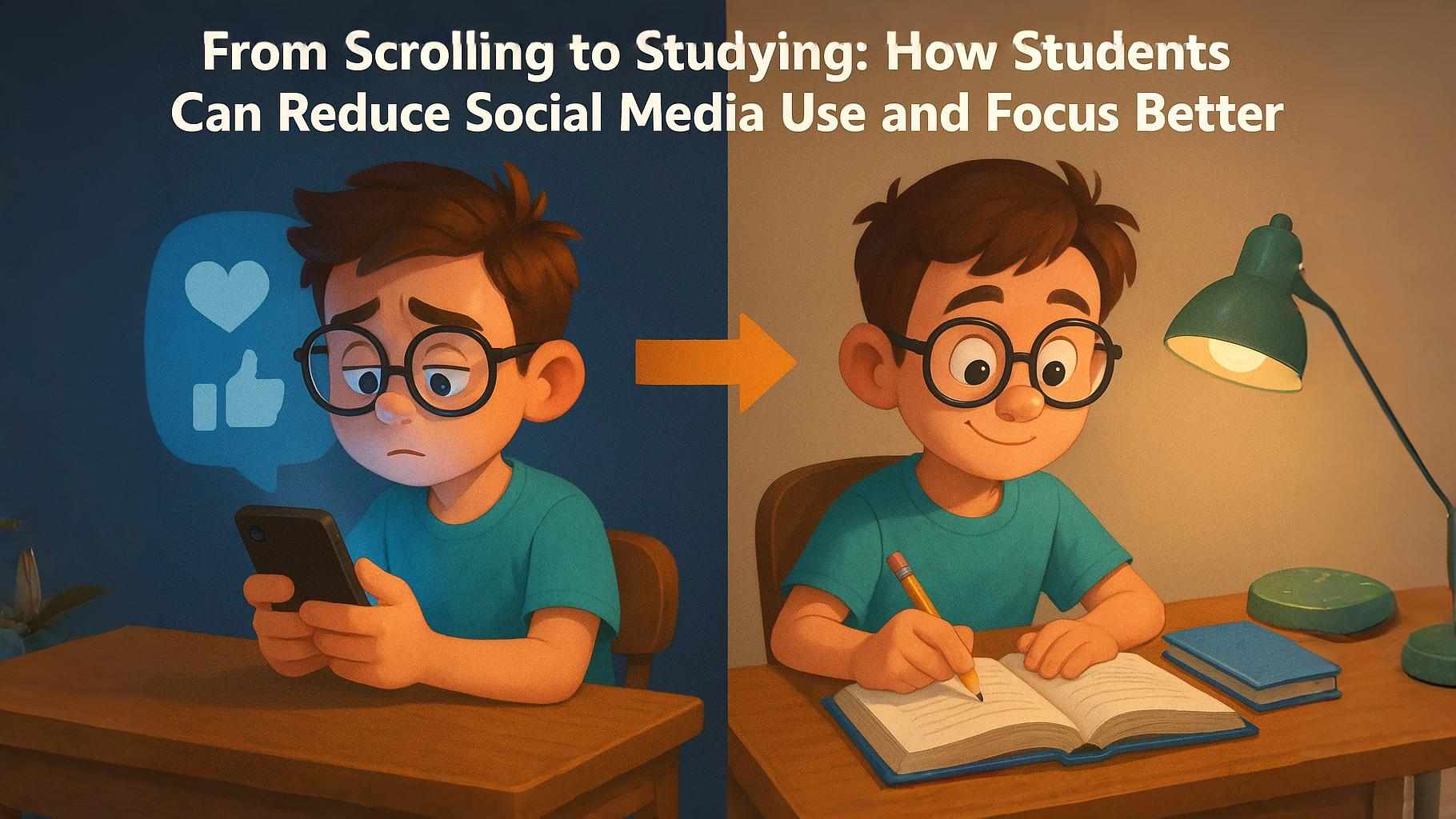Loading advertisement...
20-06-2025

Introduction
In today's digital world, students are more connected than ever. From watching reels to replying to group chats, social media takes up a large part of everyday life. While it helps us stay informed and connected, too much social media can deeply affect students' ability to concentrate on studies.
If you feel like your phone controls your time instead of the other way around—this blog is for you.
How Social Media Affects Students' Study Life
Social media apps are designed to grab your attention—and keep it. One notification can turn into an hour of scrolling.
Real-life impact:
Common problems:
What Happens to Your Brain?
10 Practical Tips to Reduce Social Media and Focus on Studies
Here are tried-and-tested tips students can use daily:
1.Turn Off Notifications
You don’t need to know who liked your photo instantly. Keep notifications off during school hours and study time.
2.Use Time-Tracking Apps
Install apps like:
They show you how much time you spend on each app—and help you set limits.
3.Create a Distraction-Free Study Zone
Keep your phone:
4.Follow the 25–5 Rule
Use the Pomodoro Technique:
5.Set Rewards
Finish your study goal → Get 10 minutes of social media time. This trains your brain to earn screen time, not waste it.
6.Use Study with Me Videos
Search YouTube for “Study With Me” sessions. They keep you accountable and focused.
7.Mute or Unfollow Distractions
Reduce your feed:
8.Involve Friends in Digital Detox
Challenge your friends:
9.Practice Mindfulness
Try 5 minutes of deep breathing before you start studying. It clears your mind and resets focus.
10.Track Your Progress
Keep a journal:
Why It’s Worth It: Benefits of Social Media Reduction
When you spend less time on social media, you’ll notice:
✅ Higher concentration
✅ Better academic performance
✅ More time for hobbies
✅ Less stress and pressure
✅ Stronger real-life friendships
✅ Improved sleep and mental health
You’ll feel in control of your time—not overwhelmed by it.
Motivational Thought
“Discipline is choosing between what you want now and what you want most.”
Control the Scroll
Social media is a great tool—but it shouldn’t control your day. As a student, your time and energy are precious. With simple steps and smart choices, you can reduce distractions and focus better on your studies. Start small. Even 1 hour less per day can make a big difference.
✅ Stay connected with Skool Guru for more educational tips, exam strategies, and academic guidance.
📞 Need help? Contact our mentors today!
Visit: www.skoolguru.in